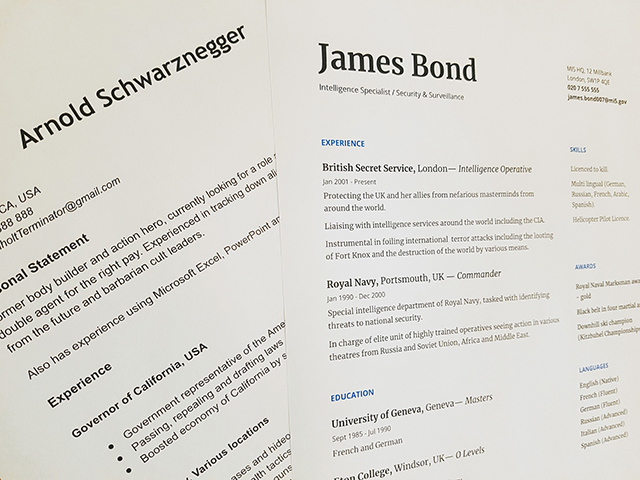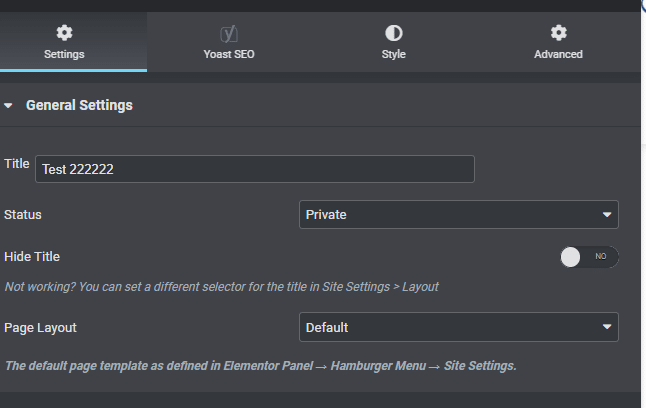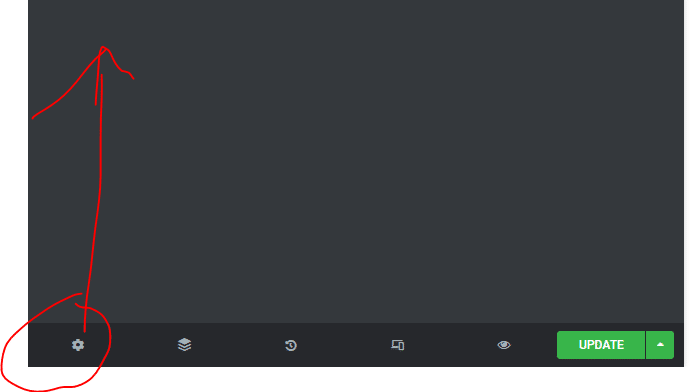
Graduating from college is a fantastic feeling. The sense of pride and accomplishment that comes with finally earning the degree for which you have worked so long and hard is difficult to replicate. When you’re riding that kind of high, you often feel invincible, as if the world is your oyster.
Perhaps it is this feeling of imperviousness that causes so many new graduates to make basic mistakes during their first post-graduate interviews. Once you have found the perfect postgraduate job, you want to do all you can to make sure you land the position.
Interviewing well is as much an art as it is a science. While some people naturally shine in an interview setting, many of us need a little extra guidance and preparation in order to present our best side to an interviewer.
The good news is that, if you can learn to avoid some of the most common pitfalls that recent graduates fall into, you can give yourself the best possible chance of landing the job. Make sure to avoid these mistakes at all costs.

1. Forgetting Manners Outside the Interview
When you arrive for an interview, you will most likely be meeting your interviewer at their place of business, the place where you are hoping to land a job. From the moment you enter the building, you should assume that everyone you encounter is going to be providing feedback about you to the boss. It’s not uncommon for bosses to ask the current team their first impressions of any potential new hires.
Don’t just reserve your manners and best behavior for those in the interview itself. A good business leader will be watching you just as eagerly outside the interview room as they do within it, looking for any indicators of the kind of worker you will be if they decide to hire you. It’s best to assume that every person you encounter is management-level and has a say about your future employment.
2. Being Cocky
Confidence is a good thing, and, as a recently graduated student, you will have plenty to feel confident about. However, there is a very thin line between confident and cocky. While it is good to believe in yourself, it is not good to present yourself as someone who thinks they can do it all on their own without input from others.
It doesn’t matter where you’re applying to work, there are some fundamentals of employment that will never change. Some jobs require more teamwork than others, but even if you’ll be doing most or all of the work on your own, you still need to be able to fit in as part of a larger team. If you give the interviewer the impression that you aren’t a team player and are more concerned with your own success than the team’s, you may be overlooked for a position.
As a new graduate, it is important that you don’t let your degree go to your head. Even if you managed to set records at your alma mater, you will be entering a workforce of other people who have experience as well as knowledge. The more you show yourself willing to learn from the other people with whom you work, the more confidence the employer will have in you.
If your employer wants to interview you over Zoom, something that is becoming increasingly common, the same rules apply. You still need to ensure that the way you talk to your interviewer is respectful and that you don’t come across as cocky.

3. Not Dressing Appropriately
In terms of how you present yourself to a prospective employer, the way that you dress is one of the most important components. Whether your interviewer is even aware of it or not, they will make a number of snap judgments about you based on the way that you dress. It’s easy to just say, “dress smart and be smart,” but this isn’t necessarily the best option.
Of course, you should aim to look smart, neat, and clean for any interview. However, you don’t necessarily need to wear a suit and a tie. In fact, if the place to which you are applying isn’t particularly formal, it might be better to dial down the formality of your dress accordingly. Keep in mind, however, that hoodies, sweatpants, t-shirts, flip-flops, shorts, and jeans are never appropriate options for a job interview.
Regardless of anything else, you should always make sure that the clothes you wear to an interview are clean, pressed, and modest. That last point is an important one for both men and women. It doesn’t matter how many hours you’ve put in at the gym, or how great you think you look in a new summer dress, your interview attire should be a bit more conservative than your usual fashion choices. It is always better to err on the side of caution where your interview is concerned.

4. Not Researching Beforehand
It’s amazing how many graduates turn up to their first interview having barely done any research into the business. Naturally, those who have just graduated from college will be eager for the opportunity to take a job in their chosen field and begin applying the degree they have earned to the real world. But no matter how eager you might be to start looking and applying for work, you need to make sure that you thoroughly research any potential employers beforehand.
An interviewer will be able to tell if you haven’t researched the business from the answers you give and the questions you ask. Demonstrating to a potential employer that you recognize the importance and significance of the decision you are making will let them know that you are a thoughtful person and someone who cares a great deal about where they work.
Researching beforehand can also give you a good idea of what to expect during the interview, as well as which skills and what knowledge they are likely to value the most. The better your understanding of the company, the easier and less stressful you will find the whole interview process. With social media, you can often find firsthand experiences of other people who have already been through the interview process.

5. Not Asking Questions
Remember what we said earlier about being cocky? Well, this is an example of how you can demonstrate some of your best qualities to an employer without coming across as egocentric. Simply asking them some appropriate questions about the business will show you have done some research.
If you’re planning on applying for an internship, make sure you take the time beforehand to find out as much as you can about what is involved. When you ask your interviewer about the company, make sure to preface your questions with a phrase like, “According to the research I’ve done…”. There are lots of subtle ways that you can emphasize to your interviewer that you have done your best to find out about the position for which you’re applying.
Interviewees that don’t ask any questions always stand out and appear less interested than those that clearly demonstrate the fact that they have researched beforehand. Avoid generic questions about the job, and instead, focus on questions that are specific to the role for which you are applying and the industry in which you will be working.

6. Not Turning off Phone
It seems crazy that in this day and age there are still people who haven’t fully grasped the etiquette that surrounds cell phone usage. Obviously, there is a time and a place for cell phones, and your job interview is definitely not one of them. It might seem like a minor thing to you, but if your phone goes off during the interview, it will break the flow of whatever is being said and will also indicate to your interviewer that your mind is not entirely on the subject at hand.
If your phone does end up going off, or making an unexpected noise during your interview, simply apologize sincerely and turn the device off. Make sure that you don’t check the number or read the message as you are doing this, it’s way more obvious than you might think.
7. Putting Salary First
For many jobs, the salary will be made clear as part of the advertisement for the position. However, there are also a large number of graduate jobs where pay is variable and might even come down to negotiations. In any case, your salary should be the last thing you discuss. In fact, you should avoid any discussion of your salary until you have actually been offered the job. Otherwise, this kind of conversation will make you seem too cocky.
If you’re asking questions about the salary you will be receiving right off the bat and overlooking questions about what the job will be like on a day-to-day basis, you will give the wrong impression. An employer doesn’t want an army of workers who are only in it for the paycheck. They want workers who care about the work itself and the business providing it, of course.

8. Sending in a Generic Resume
The direction that your interview takes and the interest of a company in you as a potential employer will be set before you’ve even taken your seat. We mentioned above how important it is to dress appropriately because of the initial impression you create. Well, the first impressions a business has of you will come before even this.
The resume that you submit as part of your application for a job will be the first encounter that a potential employer has with you. This will be the earliest opportunity you have to make a good impression and show yourself in the best possible light. It is therefore worth considering your resume to be the first part of any interview process. Businesses can tell when you’ve sent them a generic resume and cover letter, because it won’t mention anything specific about the company or particular position you wish to fill.
No one is expecting you to produce an entirely new resume for every application you make. However, you should make sure that the cover letter you send with your resume makes it clear that you have written it for that particular job and have given some thought to the specific role and business in question.

9. Not Including Extracurricular Activities on Resume
When you are writing a resume and cover letter, the temptation is to stick entirely to activities that are relevant to your academic and professional life. However, you should remember that you will likely be one of many applicants who has a similar background. In order to differentiate yourself from these other applicants, you should also list any extracurricular activities in which you partake, even if they have no apparent relevance to the job for which you are applying.
As well as giving potential employers an idea of what you are like as an individual, your extracurricular activities can help the flow of conversation by giving your interviewer new lines of questioning to pursue. They also give you the chance to talk about yourself in a natural way that doesn’t feel forced.
Once again, it’s important to not allow your confidence to translate into cockiness. That said, you should certainly show your enthusiasm for your hobbies and passions outside of the workplace. In situations where an employer has two candidates who appear equal on paper, the way they interview and present themselves on a personal level will often be the deciding factor.

So What’s the Bottom Line?
If you enter an interview with the right attitude and demeanor, you will start off on the best foot possible. Don’t wait until the interview to start making a good impression, though. Instead, think of your resume and cover letter as the first stages of the interview. Give your interviewer all the information he or she needs to not only assess your qualities as a candidate, but to get a glimpse of who you are as an individual.
When it’s time for the interview itself, make sure that you avoid the common mistakes listed above and arrive at your interview dressed to impress. As long as you are able to avoid the most common pitfalls, that dream job is within your grasp.








